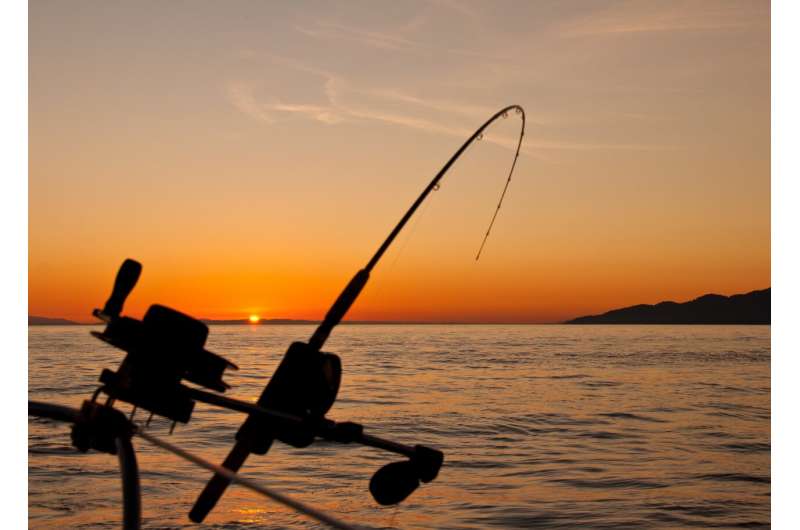Fishing could ease severe mental health issues, survey finds

A new survey of UK adults suggests that recreational fishing could help people suffering serious mental health problems.
Research carried out by Anglia Ruskin University (ARU), Angling Direct Plc and the charity Tackling Minds surveyed approximately 1,900 UK adults online.
Of those people who said they participated in recreational fishing, significantly fewer stated that they suffered from anxiety disorder (16.5% versus 26.4%), had attempted suicide (7.5% versus 13.2%), and engaged in deliberate self-harm (10.4% versus 20.6%) compared to those who do not fish.
The main motivators for fishing were the challenge of fishing and to relax, with no difference in motivators for fishing being shown among anglers with disabilities compared to anglers without disabilities.
Results from a separate study by Anglia Ruskin University (ARU), published in the International Journal of Environmental Research and Public Health, also found that fishing participation is similar between anglers with disabilities and anglers without disabilities, suggesting the pastime is relatively accessible. However, barriers such as costs, lack of transport, or lack of companions to fish with were more commonly reported by people with disabilities.
In 2021, Tackling Minds was successful in its campaign for angling to be recognized as an official social prescribing activity on the NHS, thanks to its many mental health and well-being benefits.
Tackling Minds' founder, David Lyons, said, "We have been told on numerous occasions by our service users that if it were not for the fishing sessions, they don't think they'd be alive today. To now have scientific evidence to back up what we've been saying all along, is unbelievable, to say the least. The wider implications this research will have, not only in the angling sector, but also mental health provision will be amazing to see."
Lee Smith, professor of public health at Anglia Ruskin University (ARU), said, "Recreational fishing is very popular in the UK, with about 2 million people taking part in the pastime in 2019. Our published study found that it is an accessible sport, despite the presence of some barriers."
"We know from previous studies that exposure to aquatic environments, known as blue spaces, is associated with improved mental health and well-being."
"The work we have carried out has highlighted that individuals who fish have lower levels of diagnosed anxiety disorder, suicide attempts and instances of deliberate self-harm compared to those who did not fish. "
"This would suggest that encouraging participation in fishing could be a good dual-method strategy for both promoting relaxation and good mental health as well as encouraging increased levels of physical activity within those with mental health issues such as anxiety disorder."
Andy Torrance, CEO of Angling Direct Plc said, "At Angling Direct our purpose is to get everyone fishing. Anglers have long known that the combination of the fishing combined with relaxation in the outdoors in great for their general well-being and mental health. We're delighted to be working on this with Anglia Ruskin University and Tackling Minds, and are very excited about its potential implications to support social prescribing and further public health interventions."
More information: Rosie K. Lindsay et al, Fishing Participation, Motivators and Barriers among UK Anglers with Disabilities: Opportunities and Implications for Green Social Prescribing, International Journal of Environmental Research and Public Health (2022). DOI: 10.3390/ijerph19084730





















